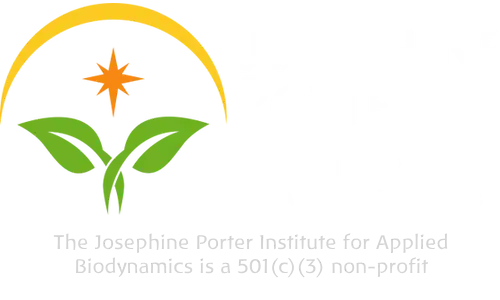The impulse of Rudolf Steiner centers around neither determinism nor around licentiousness but rather what he calls "ethical individualism" grounded in human freedom. What is freedom? The philosopher Hannah Arendt posits freedom as freedom from necessity. In the world of human existence, this means mastery of the natural elements and supplying one's family with food, water, shelter, and culture. Before Arendt, Hegel posited a bit more cryptically that to be free means that something is free in itself, of itself and for itself. That is to say, within the limits of a given organism, it must be self contained ("in" itself), be capable of sustaining homeostasis ("of" itself) from its own capacities, and also be free to pursue its own goals ("for" itself).
In the case of the human being, we are especially suited to transforming our environment to provide us with free time (leisure) to pursue distinctly human endeavors such as music, art, poetry, and contemplation.
Although a child ostensibly has more free time than an adult, much of its resources are being used to grow and learn. You could almost say that it is as if a child is thinking itself into being, and when that difficult process is complete, self-conscious thought is freed from building the body to express itself as thought as we know it.
When a farm is first being established, it is like a child. At first all it can do is absorb from the cosmos and the farmers are preoccupied with thinking the farm into existence. It can be a very busy time setting up the farm! But once basic rhythms are established and infrastructure solidified, time begins to free itself up and the farmers become more reflective, thinking back over what has worked and what has not worked.
When Ehrenfried Pfeiffer asked Steiner about why there was such a lack of spiritual development these days, Steiner replied, "It is a problem of nutrition." Which is to say, the further we stray from Eden, the harder it is to return to Eden. But the prodigality of human existence demands not that we perfect the Earth itself, but that we "hold the door open" for those who wish to return. As such, providing better nutrition and regenerating the Earth is not a utopian ideal but of utmost practical significance. If people are gifted better nourishment, their freedom is enhanced because we will be lifted somewhat above the merely animal instincts. If we are starving, it is hard to give ourselves over to art, music, poetry, contemplation -- or even sharing.
Imagine every farm being free in itself (freedom within the boundaries of the farm), of itself (free from dependence on outside inputs), and for itself (free to pursue its own creative expression within the farm). Moreover, imagine countries doing the same. People ask, "Is biodynamics scalable?" If it means freedom, then, yes, it's one of the only things worth scaling. Farms and countries aiming on ever-greater fertility would have no need to encroach on one another and resource wars would reveal themselves to be unnecessary.


